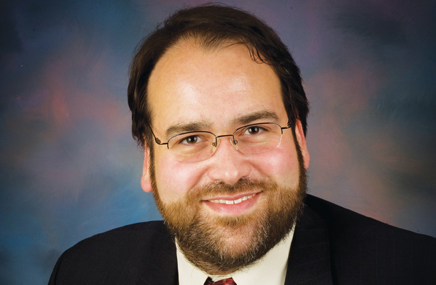With the dust beginning to settle on CMS’s final rule for the Sunshine provisions of Obamacare, winner and losers are starting to emerge from the fine print of the 287-page document.
THE WINNERS:
• Clinical Research Organizations. Instead of making companies break down the value of a research grant to each participant in a study, CMS decreed that they can just report the amount spent on research, plus a list of the doctors that participated in a clinical trial. “I thought it was elegant, the way they came up with a solution to that,” says Tom Sullivan of med ed firm Rockpointe and the Association of Clinical Researchers and Educators.
“Reporting payments or other transfers of value for research activities is extremely complicated,” the final rule reads. “We understand the need for a simple and clear reporting process.”
“CMS recognized a fundamental difference between research payments and other types of payments to physicians,” said John Lewis, head of public affairs for the Association of Clinical Research Organizations.
CROs also stand to gain from the sheer sweep of the law’s reporting requirements, which go back to the preclinical phase and mandate that companies keep their records for nine years.
• Marketing research firms. The final rule includes an exemption for reporting of indirect payments where manufacturers are unaware of the identity of the recipient, as is common in marketing research.
“For purposes of this rule only,” says CMS, “we will not consider an applicable manufacturer to be acting in deliberate ignorance or reckless disregard of a covered recipient’s identity in situations when the reason a payment or other transfer of value is being made through a third party is that the identity of the covered recipient remains anonymous.”
“We were pleased to see mention of that in the guidance,” said Howard Fienberg, director of government affairs at the Marketing Research Association. “There would be very few doctors interested in participating in a study if they were going to be tagged as being under the influence of the sponsor.”
The MRA was also delighted to see states with restrictive conflict-of-interest laws, like Minnesota, acknowledging that the law will preempt their own—though the law’s preemption doesn’t bar Vermont from banning payments to physicians.
• Accredited CME providers. The law exempts reporting on indirect payments to speakers at accredited CME programs made through third parties. CMS said they “agree that industry support for accredited or certified continuing education is a unique relationship.”
“The transparency component of the Sunshine Act aims to eliminate potential conflict of interest, and we wholeheartedly support that goal,” says Andy Rosenberg of the CME Coalition, “but the case we were making is that accredited CME is already subjected to very stringent rules, and layering the sunshine act reporting requirements on top of that would be duplicative, unnecessary and ultimately detrimental to the cause of educating physicians. And they agreed.”
• Lawyers, for whom Marc Scheineson, who heads the food and drug law practice at Alston & Bird, calls it a “full employment act.”
“It’s huge complexity and really comprehensive requirements will need to be reviewed by every pharmaceutical manufacturer that makes a grant now and in the future,” says Scheineson, noting that CMS estimates that the law will cost $269 million to implement, plus $180 million per year to administer.
LOSERS:
• Promotional med ed providers. “With regard to unaccredited and non-certified education, we believe that since this type of education program does not require the same safeguards as an accredited and certified program, payments or transfers of value should be reported,” says CMS. That goes for FDA-mandated REMS education, too, when it’s not accredited.
• Medical societies and publishers (maybe): Under the law, textbooks are considered a gift when they’re industry-sponsored and the recipients are known. Does this apply to advertising-supported journals or physician social networks? Industry-sponsored meetings and conferences? That’s not yet clear.
• The restaurant and hotel industries. They’ll serve more buffets and fewer per-plate lunches at speaker events and conferences, thanks to an item exempting reporting of expenses for meals where a cost-per-participant can’t be determined.
“I think the big loser is the patient,” said John Kamp, executive director of the Coalition for Healthcare Communication. “When you can’t attend a REMS presentation without your name appearing on a list of physicians who’ve gotten gifts from industry, you’re just going to know less about what the FDA said you should know more about. There will be less collaboration, and that’s going to be bad.”
From the March 01, 2013 Issue of MM+M - Medical Marketing and Media







